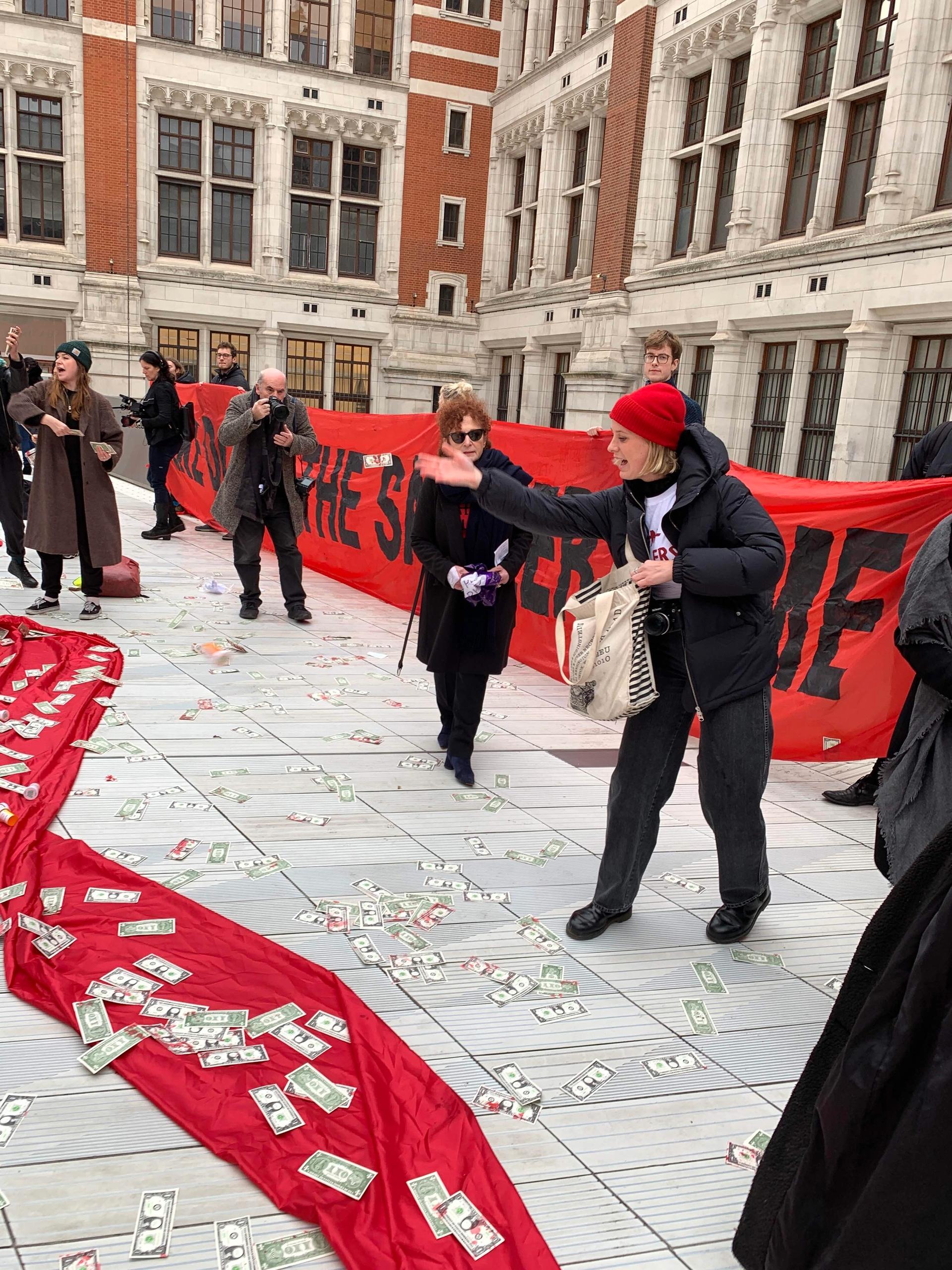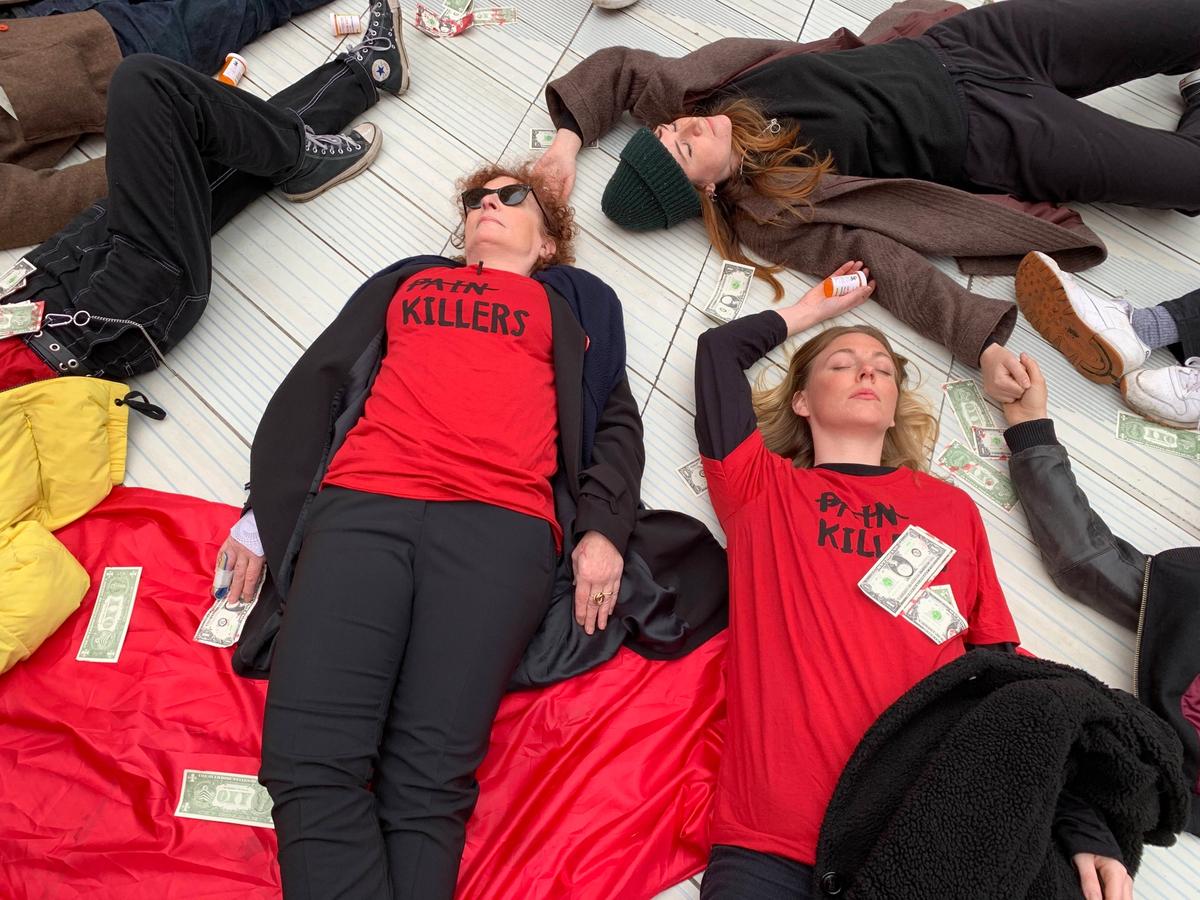The US photographer Nan Goldin and her activist group Pain (Prescription Addiction Intervention Now) have held their first protest in the UK, unfurling banners in front of the Victoria and Albert Museum (V&A) demanding that the museum “abandon the Sackler name”, and remove signage at the institution linked to the eponymous family.
Members of the Sackler family and its company Purdue Pharma are accused in multiple US lawsuits of fuelling the opioid crisis by aggressively marketing the prescription painkiller OxyContin and misleading doctors and patients about its addictive qualities—allegations that the company denies. Purdue Pharma filed for bankruptcy in September, agreeing a $10bn settlement in some opioids cases; litigation procedures have since stalled however.
Theresa Sackler, the chair of the Sackler Trust, sat on the V&A’s board of trustees (her term expires this month). She was the third wife of Mortimer Sackler, a former chief executive of Purdue who died in 2010, and is being sued personally over the opioid crisis. In March, she announced that the Sackler Trust and the Dr Mortimer and Theresa Sackler Foundation were suspending all new charitable giving in the UK.
More than 30 artists and activists swarmed earlier today around the Sackler courtyard at the V&A, distributing dollar signs stained with blood and empty opioid containers. The group also staged a "die-in" outside the museum. Goldin told The Art Newspaper that she wants the Sackler name removed from the V&A (as well as the courtyard, there is the Sackler Centre for Arts Education).
“[V&A director] Tristram Hunt stands proudly by the Sackler name. We want him to separate himself publicly [from the Sackler family],” she says. “He said you cannot change history. This is not history, this is now. People need to stand by people with opioid [addiction].” A Pain statement adds that this “is not the past. Opioid overdose is happening now.”
We reached out to Hunt who did not respond immediately to a request for comment. In an interview with BBC Radio 4 in July, Hunt said: “Like many other institutions, we receive very generous support from the Sackler family, and we remain grateful for that. The Sackler family has said that they will not be giving any more funds to cultural institutions into the future.”
A V&A spokesman said in a statement: "As a national museum and a space for civic debate, the V&A fully supports the public’s right to a peaceful protest. We are grateful for the generosity of our donors, which contributes towards our world-class public programme, supports the expert care needed for the collection and improves our facilities so they can be enjoyed by future generations."
In March, London’s National Portrait Gallery decided against accepting a £1m grant from the Sackler Trust. After a Pain protest at the Louvre in Paris over the summer, gallery officials subsequently removed all mention of the Sackler name, taking down plaques dedicated to the family (the name was removed from the 12 rooms of the Louvre’s Wing of Oriental Antiquities). In May, the Metropolitan Museum of Art in New York said that it would stop accepting donations from members of the Sackler family.

Pain protestors throw dollar signs over the Sackler courtyard at the V&A Gareth Harris


